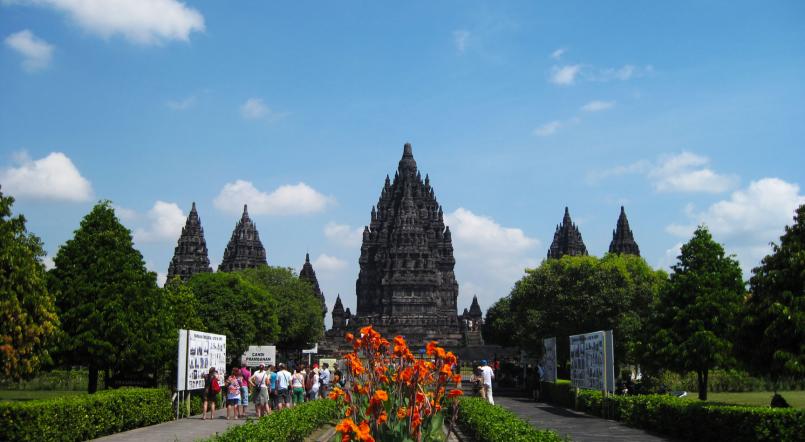HQ Asia: What cultural traits have influenced Astra’s leadership style?
Prijono Sugiarto: Indonesian culture is basically paternalistic. For leadership, this means authoritative guidance balanced with complete concern for followers is highly respected and expected. In the case of Astra, where we employ over 180,000 people in over 178 affiliated companies, it is impossible to manage and achieve business goals without clear direction from the leadership team. In many ways, Astra as a values-driven company has inherited its direction from the company’s founding father, “Uncle” William Soeryadjaya. He established four Catur Dharmas to guide the company (there is no direct English translation for the Sanskrit term Catur Dharma, but for Astra it is about corporate righteousness and duty).
First, it is about being an asset to the nation; second, it is about providing the best service to Astra customers; third, it emphasises respect to individuals and the promotion of teamwork; and lastly, it is about striving for excellence. This spirit of righteousness and duty acts as the bonding glue for Astra and moulds our leadership style. Exercising these values on a daily basis is an important part of being a leader in Astra. In addition, Indonesia’s national culture – which emphasises the search for harmony between polarities, the spirit of partnership while competing, and the sincere practice of respect and gracefulness – also shapes our leadership style.
Metaphorically, he envisioned the leader as someone leading from the front, middle and back. For him, the leader is a truly multifaceted person, acting as patron, colleague and supporter.
Is there an Indonesian way of leadership, and how would you best describe this?
The Indonesian way of leadership cannot be described in a single model. However, one of the best leadership practices commonly adopted by Indonesians was introduced by Ki Hajar Dewantara, who was the nation’s first Minister of Education and Culture, and who laid the foundations of Indonesia’s education system. Emphasising a sense of nationhood, he introduced three guiding principles: ing ngarso sung tulodo, which is to lead by example; ing madyo mangun karso, which is to build team spirit; and tut wuri handayani, which means to provide support.
Metaphorically, he envisioned the leader as someone leading from the front, middle and back. For him, the leader is a truly multifaceted person, acting as patron, colleague and supporter. As to when a role should be emphasised over another, this depends on the maturity of the subordinate and the task involved.
To what extent should Asian ways of leadership be balanced with practices found in the West?
In Astra, we nurture our leaders to possess a global and local perspective. For us, it is critical that a leader balances between an openness to learn from anywhere and a nimbleness to adapt with Astra’s organisational context. This means our leaders must adopt the best learning from anywhere (including from world-class institutions in the West) and put them into practice within a local context. For instance, standards and management tools can be global, but interactions between superiors, subordinates and colleagues must be indigenous to local culture.
How does Astra harness diversity?
Since the very beginning of Indonesian civilisation, our social relations have been based on the spirit of Bhineka Tunggal Ika (translated as “unity in diversity”). This spirit is Indonesia’s official national motto, and a major tenet of our constitution. As diversity is the inevitable nature of a large diversified corporation such as Astra, intertwining it with unity becomes our top priority. Hence, our organisational culture is anchored in the spirit of nationalism instead of primordialism, professionalism instead of favouritism, and collegialism instead of individualism.
Indonesia is the fourth most populous country in the world, and projected to be the world’s fifth largest economy within two decades. In this environment, how is Astra working with the government, other businesses and the wider community to prepare for the future?
In light of our corporate aim, “to prosper with the nation”, Astra is determined to pursue its success together with all its stakeholders including employees, the government, peer businesses and Indonesian society. With the government, Astra plays an active role in accelerating national development by capitalising on the momentum of growth.
Within the business community, Astra strongly promotes good governance practices to ensure fair, transparent and accountable business competition.
Within Indonesian society, Astra actively participates in numerous CSR activities in the fields of education, environmental conservation and public healthcare.
In a recent Forbes interview you stated that, “Singaporeans are proud of Singapore Airlines, Koreans are proud of Samsung and Indians proud of Tata. Why can’t Indonesians be proud of Astra?” What would you like Astra to be known for?
We would like to build Astra as the pride of the nation and to be known for its locally created products that are globally competitive. With the accumulation of competencies and experiences, Astra is developing products to meet the need of today’s export markets. For example, not only do we manufacture equipment and machine tools for our own use, we also export them to other countries. For example, we are exporting our cars to other Asian countries, as well as places further afield like Latin America, the Middle East and Africa.


